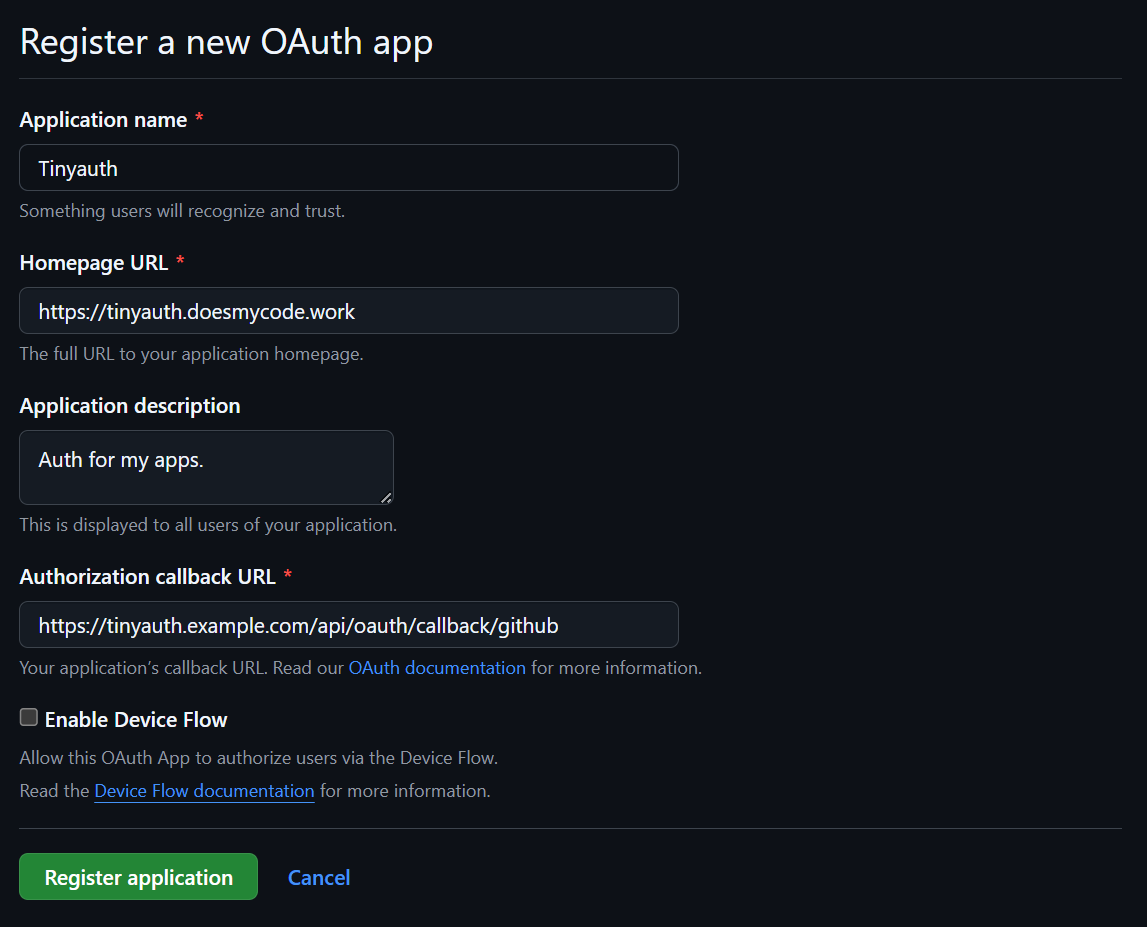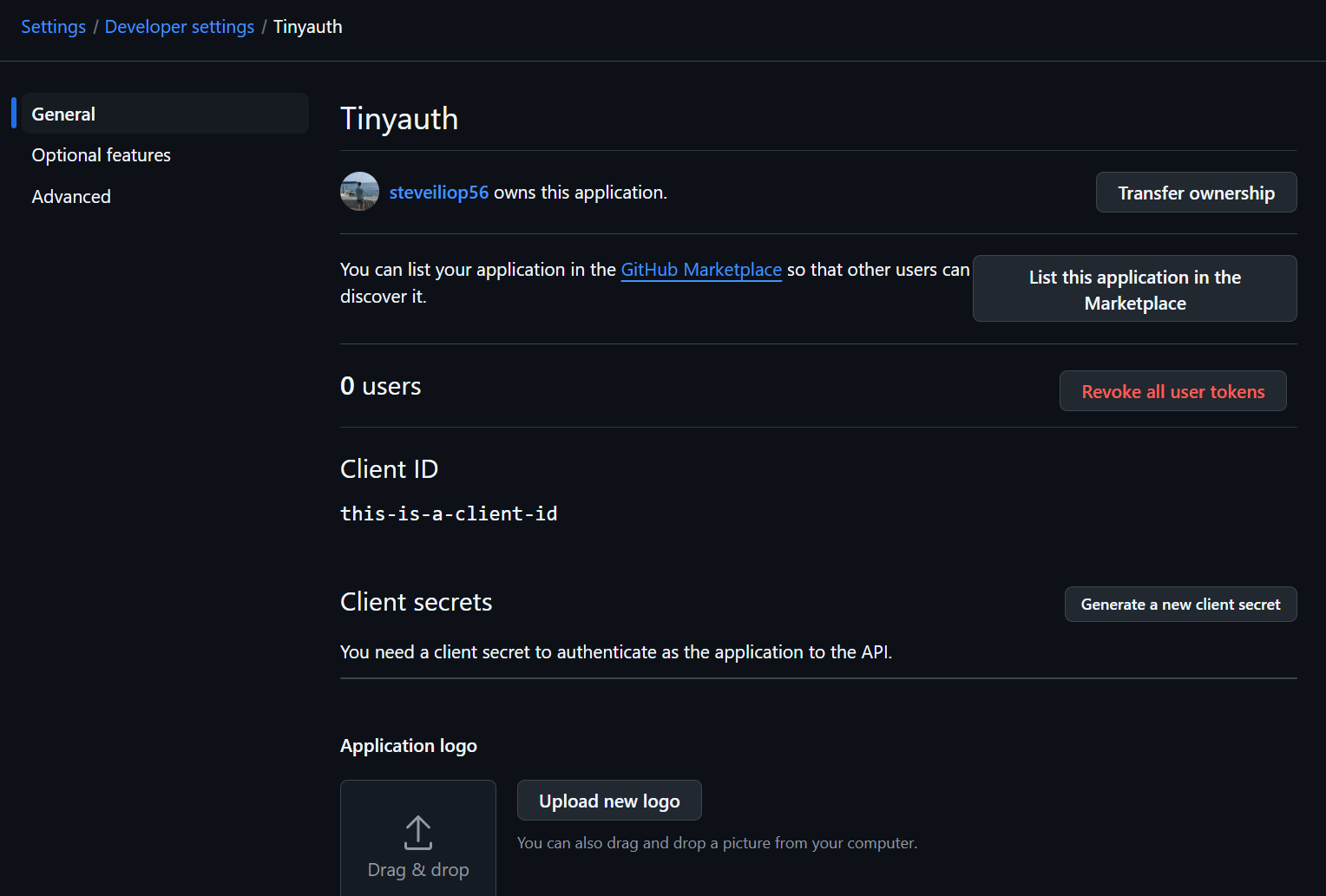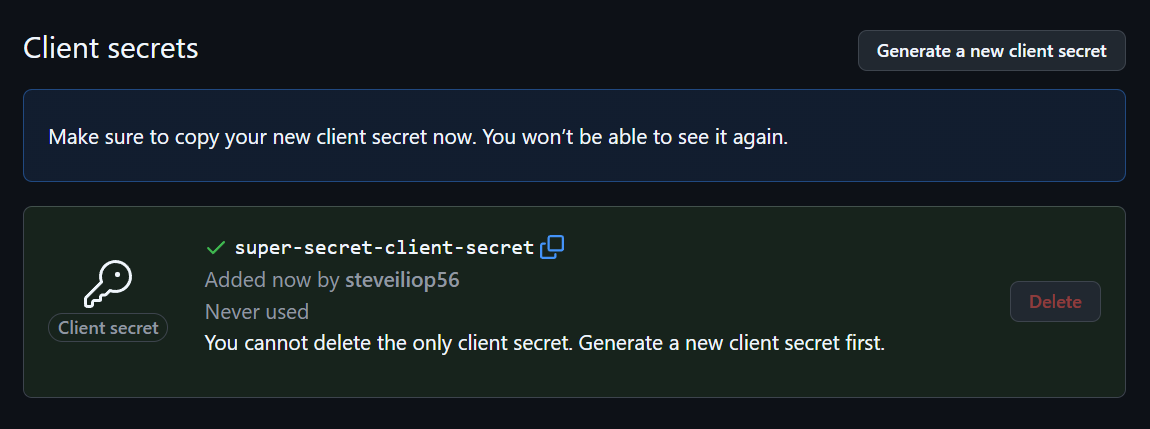Setting up Tinyauth with Github OAuth
Tinyauth has builtin support for Github OAuth with just two environment variables. Most of the hard work happens on the Github side rather than Tinyauth 😃.
Requirements
Github is relatively simple in it's OAuth requirements so what you need for this guide is just:
- Any domain name (in my testing
.localworks too) - A Github account
Create the Github OAuth app
The first thing we need to do is create a Github OAuth app, this can be done by going to the Github developer settings here and clicking New OAuth App. There we need to fill in the following values:
Application name -> Can be anything (e.g. Tinyauth).
Homepage URL -> It is required for some reason so simply put https://tinyauth.doesmycode.work, but it can be anything.
Description -> Fill in a description if you like (e.g. Auth for my apps).
Authorization Callback URL -> The only thing that is important here, you should fill in your domain and the /api/oauth/callback/github suffix (e.g. https://tinyauth.example.com/api/oauth/callback/github)

After you fill in your information, click Register Application.
Get your credentials
After you create your application, you should see a screen like this:

Here make sure to note down your client ID. Now, let's create our client secret, this can be done by clicking the Generate a new client secret button, when you click it Github will prompt you to login again and then it will create your secret which it will present like so:

Make sure to note this too as we will need it later and that's it, we are done with Github.
Configure Tinyauth
Now that we have our client ID and secret, we can pass it to the tinyauth docker container:
tinyauth:
container_name: tinyauth
image: ghcr.io/steveiliop56/tinyauth:latest
environment:
- SECRET=some-random-32-chars-string
- APP_URL=https://tinyauth.example.com
- USERS=your-email-password-hash
- GITHUB_CLIENT_ID=your-github-client-id
- GITHUB_CLIENT_SECRET=your-github-secret
labels:
traefik.enable: true
traefik.http.routers.tinyauth.rule: Host(`tinyauth.example.com`)
traefik.http.services.tinyauth.loadbalancer.server.port: 3000
traefik.http.middlewares.tinyauth.forwardauth.address: http://tinyauth:3000/api/authWARNING
OAuth doesn't mean security, with the current setup everybody with a github account can login to tinyauth as a normal user. If you would like to limit which users can login with OAuth you can add the OAUTH_WHITELIST environment variable and allow only your email address to login. For more information check here
And we are done! After you restart your docker container and go to the tinyauth login screen, you should have an additional option to login with Github.
